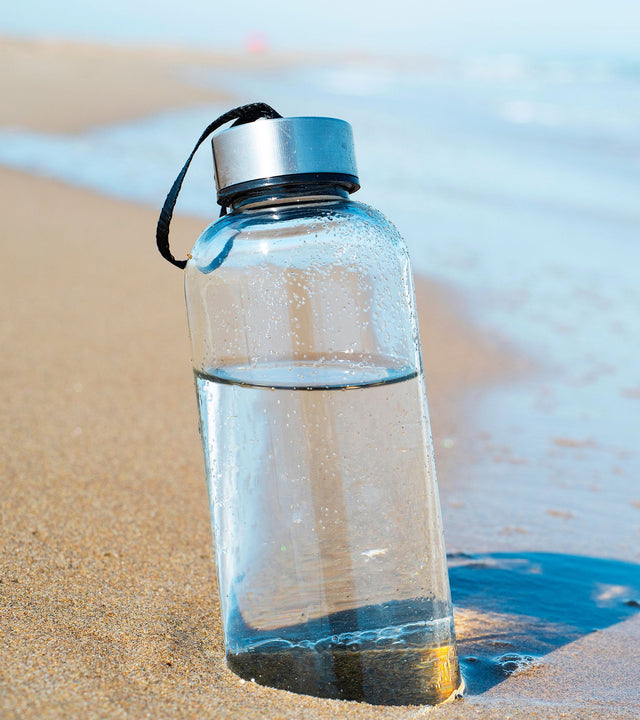What is World Refill Day?
World Refill Day 2025 is just around the corner, and there’s much to think about when it comes to ensuring you can make a difference this year with your conscious effort to switch to reusable cups, bottles, food containers, straws and more. But what is World Refill Day, when is it, why is it important to observe the day and how can you get involved? Here’s everything you need to know about World Refill Day.
What is World Refill Day?
World Refill Day is recognised globally as an opportunity for consumers to think more carefully about the single-use products they’re using and disposing of. It aims to raise awareness of the damage that those single-use items can do to the environment in a bid to encourage people to switch to reusable alternatives to reduce their carbon footprint.
When is World Refill Day 2025?
In 2025, World Refill Day will take place on Monday, 16th June. It takes place on 16th June every year, with the same aim and goal - to get people to reduce their reliance on single-use items. But why should we bother taking part in World Refill Day and what can you do to make a difference?
Why is World Refill Day important?
According to Waste Managed, 27.7 million tonnes of waste from households in the UK is generated, with 14 million tonnes of municipal waste being sent to landfill in 2021 alone. Of those 14 million tonnes of landfilled waste, 6.8 million tonnes of it are greenhouse gas-producing, which can be incredibly damaging to the environment, contributing significantly to climate change. More worryingly, states the same source, 80% of the waste that ended up in landfill in 2021 could have been recycled.
While we’re struggling as a nation to determine what can and can’t be recycled, it’s easier to simply cut out the consumption of single-use items, swapping them out for reusable products instead. Disposable coffee cups alone are a problem for the planet, being coated in wax and often coming with plastic lids, very few disposable coffee cups, in their entirety, are recycled. According to the University of Kent, only 0.25% of disposable coffee cups are recycled, which equates to just 1 in 400 cups.
From the start of their life to the end, disposable coffee cups are incredibly damaging when it comes to their environmental impact. 6.5 million trees are cut down every year in the UK to produce these disposable cups, using enough energy to power 54,000 homes, claims Green Match. Sadly, the damage done by single-use items doesn’t stop with disposable coffee cups. Single-use carrier bags are also a problem.
Single-use plastic bags can take hundreds of years to break down in landfill sites. This is because the plastic used to produce these bags cannot be recycled. When those plastic bags begin to break down, they produce microplastics. These microplastics have the potential to end up in our oceans, therefore damaging marine life. According to the Marine Conservation Society, microplastics, which are no bigger than 5mm in size, have been found everywhere, from beaches to the deepest parts of our oceans.
Eventually, the damage done by plastic carrier bags became so worrying that, in 2015, the UK government began to charge consumers for single-use plastic bags. However, this move seems to have made a dramatic change to the number of single-use plastic bags that are used by shoppers. The British government reported in 2023 that plastic bag use fell by more than 98% since the introduction of the plastic bag charge.
In a bid to increase those statistics and to deter even more people from using single-use plastic bags, the UK government decided in 2021 to increase the charge for plastic bags from 5p to 10p. Not only does using a reusable shopping bag help to lower your bill, but it will also reduce your carbon footprint and protect wildlife and marine life. Those are just a few of the reasons why World Refill Day is such an imperative and important event in the global calendar.
How to get involved in World Refill Day 2025
There are loads of ways to get involved with World Refill Day, aside from using a reusable cup to buy a coffee. If you’re wanting to get involved in World Refill Day 2025, in a way that is effective and fun, here’s a short list of activities and ideas that you can do to reduce your impact on the environment on World Refill Day.
Switch to reusable alternatives
We’ve already touched on the environmental impact that single-use items have on the planet, from disposable coffee cups to plastic bags. There will be a reusable alternative that you can get your hands on to try and minimise your carbon footprint. Here at VASO, we have a wide selection of sleek and contemporary reusable cups and bottles to choose from that can keep hot drinks warm and cold drinks cool for hours on end.
We also have an extensive collection of reusable glass straws and glass straw cases. This means that you’ll be able to take your reusable straw with you wherever you go. You should also opt for glass or bamboo food containers and a net, cotton or hessian shopping bag.
Not only are they made from sustainable materials, but they’re incredibly hard-wearing, meaning you can use them repeatedly without worrying about your reusable bag splitting, like you would with a plastic bag. If you’re wanting to take part in World Refill Day 2025, then choose reusable items to continuously fill with food, soaps and more. This brings us nicely onto our next point - zero-waste shops.
Do your food shop in a zero-waste store
Zero-waste shops will not supply you with anything disposable to bring your items home in. If you go to a zero-waste shop empty-handed (visiting without glass jars, bottles or containers), then it’s likely you can buy those jars, bottles and containers from the shop themselves. You should also bring a reusable bag with you. If you want to visit a zero-waste store, make sure you go prepared.
What better time to visit a zero-waste store to do your food shop than World Refill Day? Bring empty containers and fill them with everything you’d normally buy from your local supermarket. Depending on the zero-waste shop you’re visiting, you can buy fruit, vegetables, pasta, grains, soaps, shampoos, detergents and more from your zero-waste shop, so go with an open mind, because you never know what you might find.
Spread the word
One of the best things you can do throughout World Refill Day, and on the run up to it, is to spread the word about the cause. Try and get as many people involved with it as possible, encouraging friends and family to make switches to reusable products and to visit zero-waste shops to get what they need.
Avoid takeaways
You might not think that takeaways would have much of an impact when it comes to the environment, and you might be wondering what role takeaways have to play in World Refills Day. Takeaways can be incredibly wasteful. Not just because of the food we could end up throwing away, but also because of all of the single-use packaging involved.
From plastic tubs to paper bags and aluminium boxes, there will always be something involved that is single-use and disposable. According to Takeaway Packaging, it’s estimated that around 11 billion items of packaging are utilised annually from takeaways alone. With this in mind, by the very nature of World Refill Day, refrain from getting a takeaway.
Instead, make a home-cooked meal using pans, trays and dishes you already have in your home. Make sure those cookware items are made from glass, metal or ceramic and use reusable crockery and cutlery. Refrain from using convenient options like paper plates and cups. Choose reusable items, not just on World Refill Day, but every day of the year, if you can help it.
Organise or attend community clean-up events
World Refill Day is all about minimising the amount of single-use items that end up in landfill. While single-use products are bad for the planet, a lot of those items are recyclable. By organising or taking part in a community clean-up operation, you’ll be able to pick up litter off the streets, making sure that plastic items, like bottles and containers, are placed in dedicated recycling bins.
While a lot of litter found on the ground will end up being mixed in with general, non-recyclable waste, you’ve removed it from the community, therefore helping to preserve plantlife, wildlife and ecosystems. While this venture doesn’t have anything to do with refilling reusable items, it still has a positive impact on the environment and our local communities.

